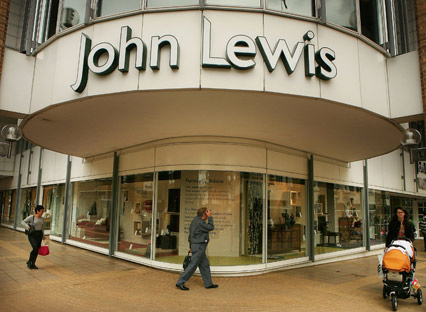Is it time for a fairer form of capitalism?
Mark Price, the outgoing boss of Waitrose, says companies are failing society

A free daily email with the biggest news stories of the day – and the best features from TheWeek.com
You are now subscribed
Your newsletter sign-up was successful
Waitrose boss Mark Price caused a bit of a stir last week with a speech about how he felt capitalism is failing society. So, is it time we changed the way businesses operate?
What did Price say?
Speaking at the Telegraph Festival of Business Mark Price, the outgoing deputy chairman of the John Lewis Partnership and managing director of Waitrose, “declared that capitalism is failing to serve society,” says Ashley Armstrong in The Telegraph.
The Week
Escape your echo chamber. Get the facts behind the news, plus analysis from multiple perspectives.

Sign up for The Week's Free Newsletters
From our morning news briefing to a weekly Good News Newsletter, get the best of The Week delivered directly to your inbox.
From our morning news briefing to a weekly Good News Newsletter, get the best of The Week delivered directly to your inbox.
Price said that companies that put employee happiness first are contributing to a “fairer form of capitalism”. He went on to state that research had found that engaged employees would result in a 20 per cent improvement in productivity, around a 150 per cent improvement in company earnings per share and a 28 per cent reduction in wastage.
“Smart societies cannot be created without fairness, equality and enfranchisement and business has a crucial role to play here,” said Price.
“Society, quite rightly, expects a lot in return from business for the privileges it is afforded. It’s time we all delivered the goods and, in return, we will all benefit from significantly improved performance.”
Is he right?
A free daily email with the biggest news stories of the day – and the best features from TheWeek.com
Price’s viewpoint is hardly surprising when you consider he helms the country’s most successful employee-owned company, the John Lewis Partnership. But he isn’t alone in his view.
Back in July the Bank of England’s chief economist Andrew Haldane took “a swipe at the way corporations are run, accusing business leaders of serving the short-term interest of shareholders at the expense of the wider economy,” reported Ferdinando Giugliano in the Financial Times.
He argued that British companies need to look at different ways of running businesses that “place greater weight on the interests of employees and customers”. Haldane also quoted statistics that show back in the 1970s only 10 per cent of company profits were returned to shareholders, but that has now climbed to 60-70 per cent.
This drive to pay dividends and conduct share buybacks is cutting the amount of money being used to finance new projects and stifling economic growth, according to Haldane.
Haldane went on to argue that the public limited company has dominated British capitalism for too long, and it was time to look at other models of corporate governance including those “which share the spoils more equally between a wider set of stakeholders in a firm” such as employees and customers”.
Vive la révolution?
We won’t all be storming Tesco and demanding a share of the profits any time soon, says Matthew Gwyther, editor of Management Today, in response to Mark Price’s comments.
“I don’t think that the self-described Chubby Grocer [Price] was advocating either storming the Bastille, a 'year zero' Pol Pot-style return to the fields or taking a lead from Hugo Chavez,” says Gwyther. “Business is certainly beset with trust issues at the moment… but unless another viable socio-economic system is coming down the pipeline, capitalism remains the best we’ve got.”
In truth Price wasn’t calling for an end to capitalism, just a fairer version of it. A version that allows for companies to focus on what they do rather than how much money they hand back to shareholders. The sort of employee-focused model used by, say, John Lewis.
How can this be achieved?
When Google floated in 2004, founders Larry Page and Sergey Brin gave their own shares 10 times more voting rights than other shares “in order to protect their capacity to innovate” and avoid the tyranny of shareholders hungry to boost their dividends.
“From robots to self-driving cars, from virtual reality glasses to investigating artificial intelligence, Google is now one of the most innovative firms on Earth,” says Will Hutton in The Guardian.
There is certainly evidence in John Lewis, Waitrose and Google that ignoring shareholders and focussing instead on employee happiness, customer experience and innovation can create very successful companies.
But, it remains to be seen how many profitable companies will want to risk upsetting their shareholders by changing their business model.